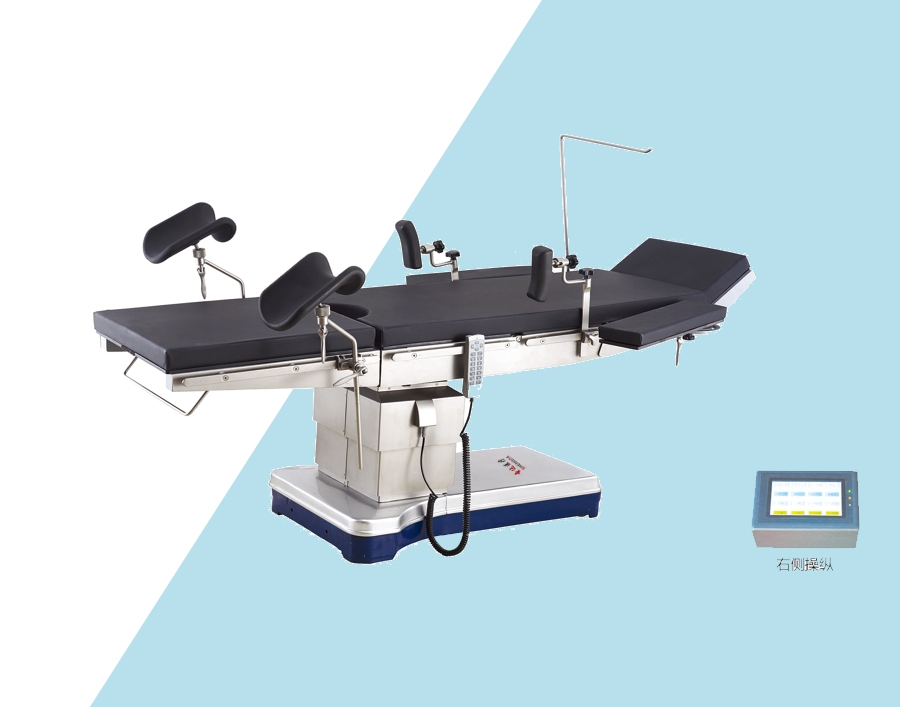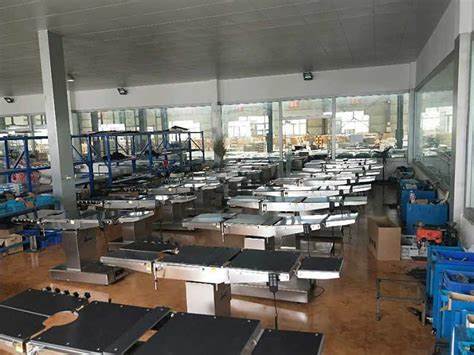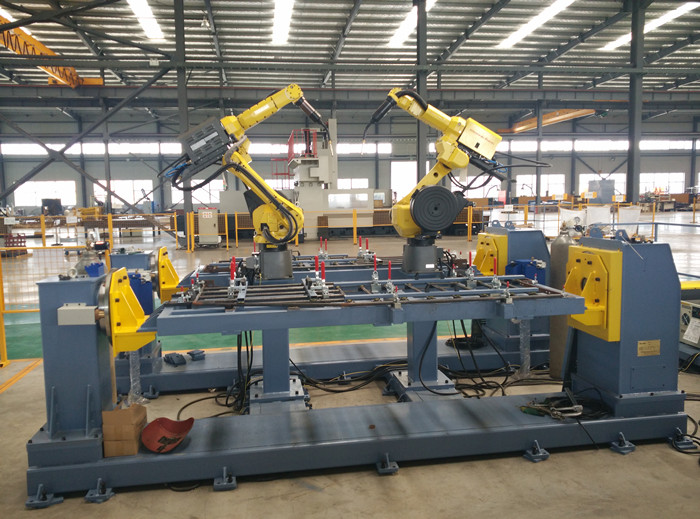Modern manufacturing techniques leverage advanced machinery such as laser pipe cutting machines,laser plate cutting machines,pipe bending machines, and laser welding machines to meet these requirements. This article explores the integral role of laser pipe cutting machines, laser plate cutting machines, pipe bending machines, and laser welding machines in the production of high-quality medical surgical beds, focusing on their application in the manufacturing process.

1. Laser pipe Cutting Machines in Surgical Bed Frame Fabrication
The structural integrity and precision of the surgical bed frame largely depend on the accurate cutting and shaping of metal pipes, which form the bed’s skeleton. Laser pipe cutting machines have revolutionized this process by offering high precision, speed, and flexibility.
Precision and Efficiency
Laser pipe cutting machines use a high-powered laser beam to cut metal pipes made of stainless steel or aluminum alloys, which are common materials for surgical bed frames due to their strength and corrosion resistance. Unlike traditional mechanical cutting, laser pipe cutting machine is contactless, which reduces material deformation and produces clean edges with minimal burrs.
Complex Geometries and Custom Designs
Laser pipe cutting machines excel in producing intricate shapes and precise holes, slots, and notches on the pipes, enabling seamless assembly with other components.
Material Utilization and Cost Savings
The precision of laser pipe cutting machine also optimizes material usage by minimizing waste. The ability to nest multiple cutting patterns efficiently on raw material pipes lowers costs, which is especially important given the high standards required in medical equipment manufacturing.
2. Laser Plate Cutting Machines for Base and Component Fabrication
In addition to laser pipe cutting machines, laser plate cutting machines play a vital role in shaping flat metal sheets used for various components of surgical beds, such as base plates, support panels, and mounting brackets.
High-Quality Cuts on Stainless Steel Plates
Laser plate cutting machines provide smooth, clean edges without the need for additional finishing processes, which ensures the components fit perfectly during assembly.
Flexibility in Design and Rapid Prototyping
Manufacturers can easily switch cutting patterns via CNC programming by the laser plate cutting machine, allowing for rapid prototyping of new designs or customization of beds based on specific surgical requirements.
Enhancing Hygiene and Durability
Smooth laser-cut edges reduce crevices where bacteria could accumulate, contributing to the bed’s hygienic design. Furthermore, precise cutting ensures that all components align correctly, reducing mechanical stresses that could lead to premature wear or failure, thereby enhancing durability.

3. Pipe Bending and Laser Welding Machines: Shaping and Assembling the Surgical Bed
After the pipes and plates are cut, the next stages involve shaping the components and assembling them into a robust surgical bed. Pipe bending machines and laser welding machines are key to this process.
Pipe Bending Machines for Structural Shaping
Pipe bending machines deform cut pipes into specific angles and curves required for ergonomic and functional surgical bed frames. These pipe bending machines employ hydraulic or electric bending methods with CNC control to achieve consistent bends without compromising the pipe’s strength.
Ergonomics and Functionality: Precise bending allows the bed frame to accommodate adjustable backrests, leg rests, and side rails, ensuring patient comfort and ease of use for medical staff.
Minimal Material Deformation: Advanced pipe bending machines maintain the pipe’s structural integrity by preventing wrinkles, flattening, or cracking during bending, which is critical for safety.
Laser Welding Machines for Seamless Assembly
Laser welding machines join the bent pipes and cut plates with exceptional precision and minimal heat-affected zones. The key advantages include:
Strong, Clean Welds: Laser welding machine produces narrow, deep weld seams with high strength and minimal distortion, which maintains the frame’s structural integrity.
Automated and Repeatable Processes: CNC-controlled laser welding machine ensures consistent weld quality and speed, enhancing manufacturing efficiency and reducing human error.
Aesthetic and Functional Benefits: The smooth weld seams contribute to the surgical bed’s aesthetic appeal and simplify cleaning and maintenance.
Final Assembly and Quality Control
Following pipe bending machines and laser welding machines, the surgical bed components undergo further finishing processes such as surface polishing, coating, and installation of mechanical and electrical parts.

Conclusion
The production of medical surgical beds involves sophisticated manufacturing technologies that ensure precision, durability, and hygiene. Laser pipe cutting machines and laser plate cutting machines provide unparalleled accuracy in shaping raw materials, while pipe bending machines allow for the ergonomic design of frames. Laser welding machines complete the assembly by delivering strong and clean joints critical for safety and longevity.

